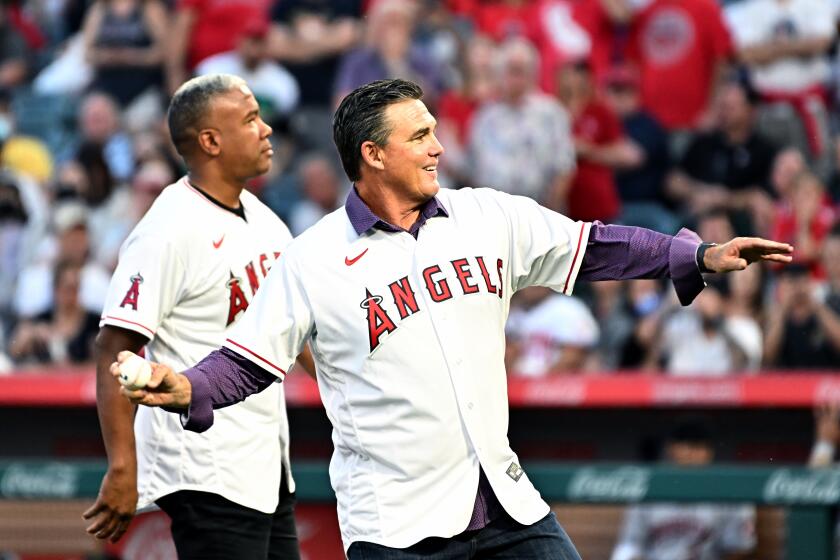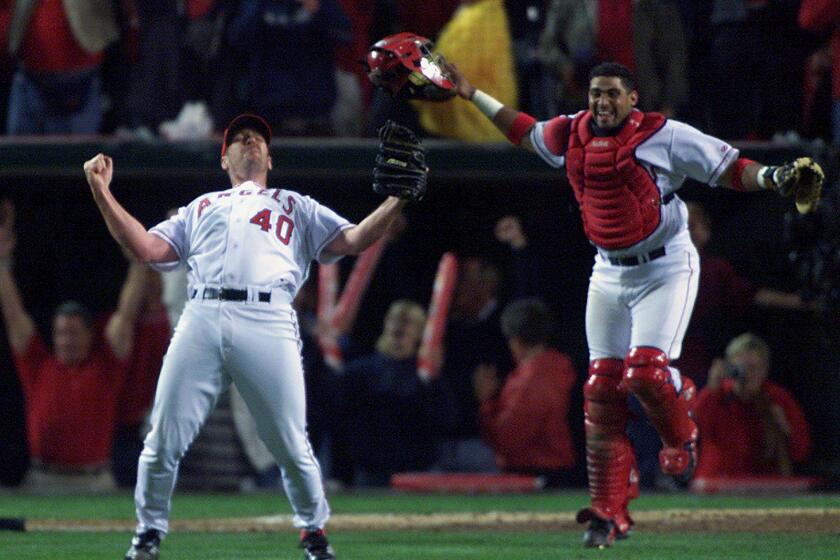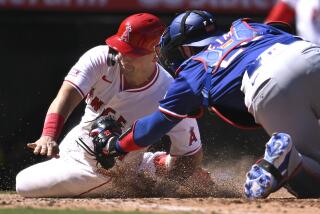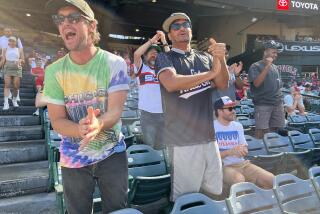Still the Angels’ finest hour: A look back at their 2002 World Series win
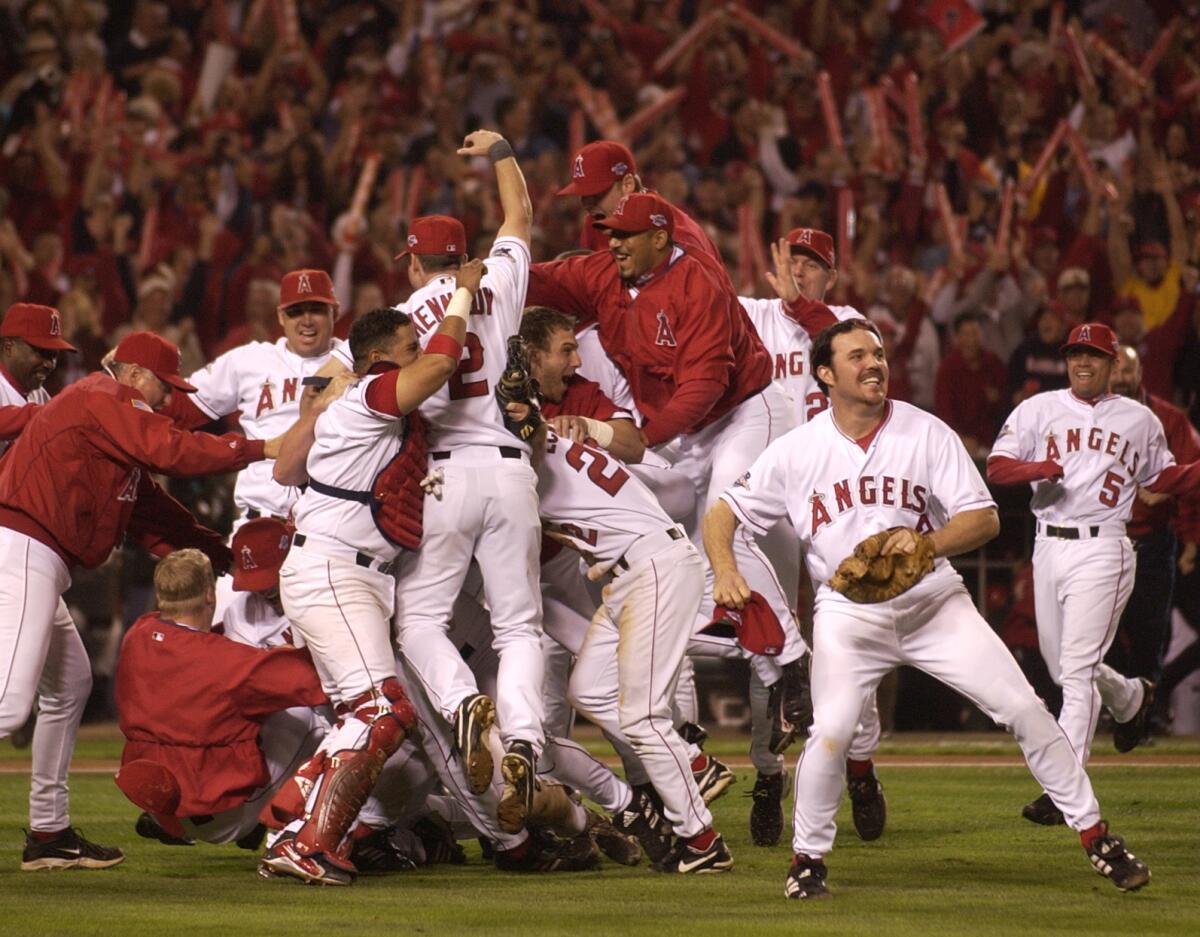
Disney’s Baseball Land, now called Angel Stadium and better known at the time as Edison Field, was not the happiest place on Earth. As 2001 turned to 2002, the Walt Disney Co. could not wait to rid itself of its baseball team.
One month before the Angels reported to spring training, team president Tony Tavares resigned. Disney did not bother replacing him. The company decided the guy who ran Disneyland could run the Angels too, when he had a few extra minutes.
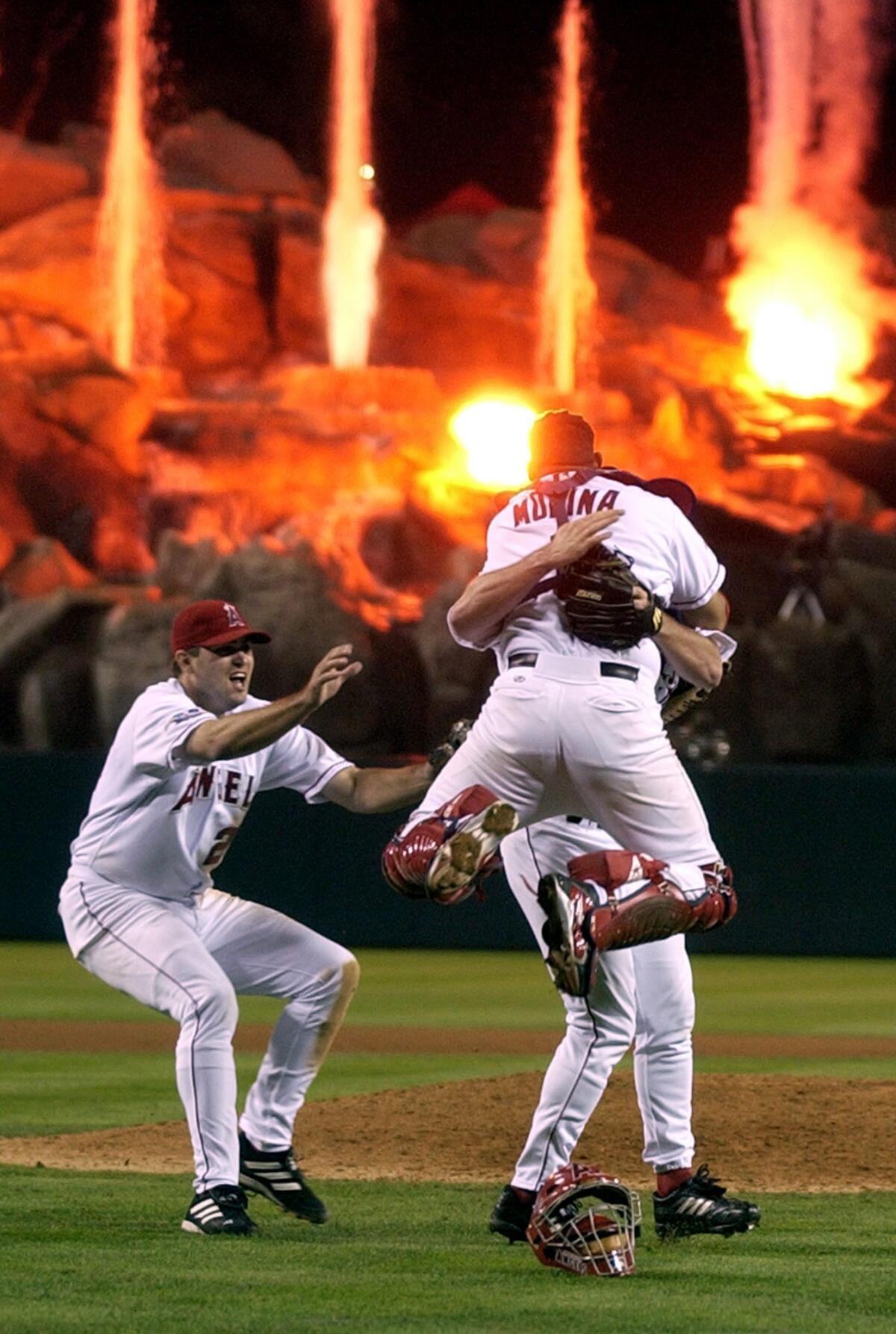
That guy, Paul Pressler, did well. The Angels were about to trade outfielder Darin Erstad to the Chicago White Sox for prospects, and Pressler killed the deal. Closer Troy Percival had vowed not to sign a contract extension with the Angels because he believed Tavares had leaked details of the negotiations, and Pressler’s presence persuaded him to sign the extension.
In October, Percival threw the final pitch of the final game of the Angels’ first trip to the World Series. Fly ball. Center field. Erstad caught it, and the Angels were champions. The headline in The Los Angeles Times: “Fantasyland!”
For Disney, the Angels were the intended foundation of ESPN West, a would-be rival of the Fox Sports West cable channel. When the ESPN West concept collapsed, Disney put the Angels up for sale.
The Angels won 99 games that season, then a franchise record. No matter. On the day the Angels clinched their first playoff berth in 16 years, The Times reported Disney had hired an investment bank to do what the company had not been able to do on its own: get the Angels sold.
In the meantime, the underdog Angels blitzed the New York Yankees, Minnesota Twins and the San Francisco Giants. Disney chief Michael Eisner showed up in the Angels’ clubhouse during the playoff run, wearing a Mickey Mouse T-shirt beneath a blazer.
At the time, Eisner was one of the most powerful executives in the world, but he stood uncomfortably alone in the clubhouse. He had paid little attention to the Angels over the years, so most of the players had no idea who he was.
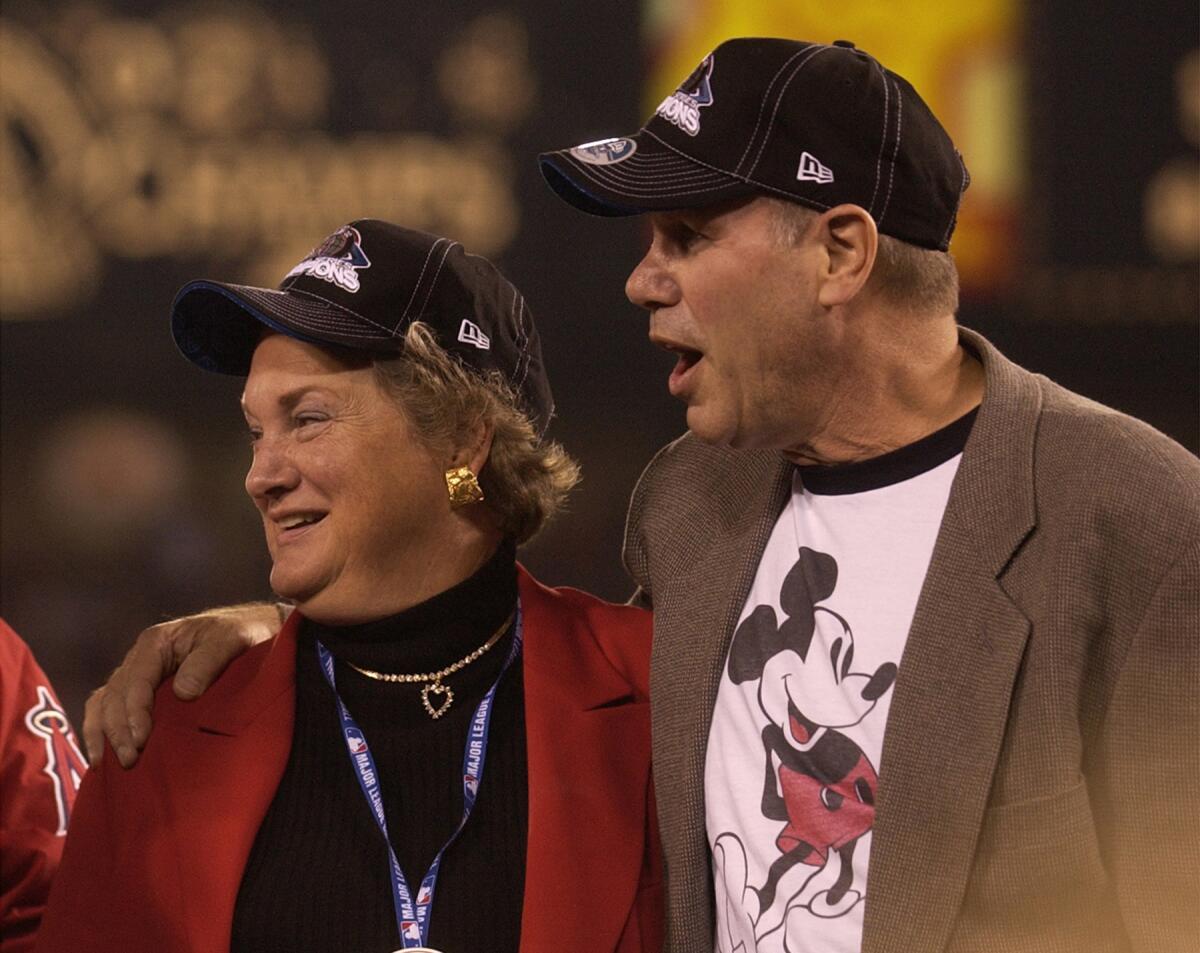
The World Series turned into a celebration of ownership: not of Eisner and Disney, but of founding owner Gene Autry, the only man with five stars on the Hollywood Walk of Fame. Autry so loved baseball that he hosted the team at his Palm Springs resort for spring training, then watched exhibition games at the rickety ballpark there. There were no luxury suites. He happily took in the games perched atop a stool, in an uncomfortably narrow tunnel beneath the stands.
Autry had passed away four years earlier, but his wife Jackie faithfully attended the playoff games, even providing outfielder Tim Salmon with one of Autry’s cowboy hats. Salmon waved it from the field after the final out. Finally, the Angels had won one for the Cowboy.
Where are the 2002 Angels players and coaches now? Here’s what they are up to at last report.
There were so many indelible images that October: Erstad making the clinching catch; pitcher John Lackey becoming the first rookie in 93 years to win Game 7 of the World Series; second baseman Adam Kennedy hitting three home runs to tie a postseason record set by Babe Ruth; 20-year-old Francisco Rodriguez uncoiling lightning from his right arm; Barry Bonds hitting a home run so far that television cameras caught Salmon mouthing words of awe: “That’s the farthest ball I’ve ever seen hit.”
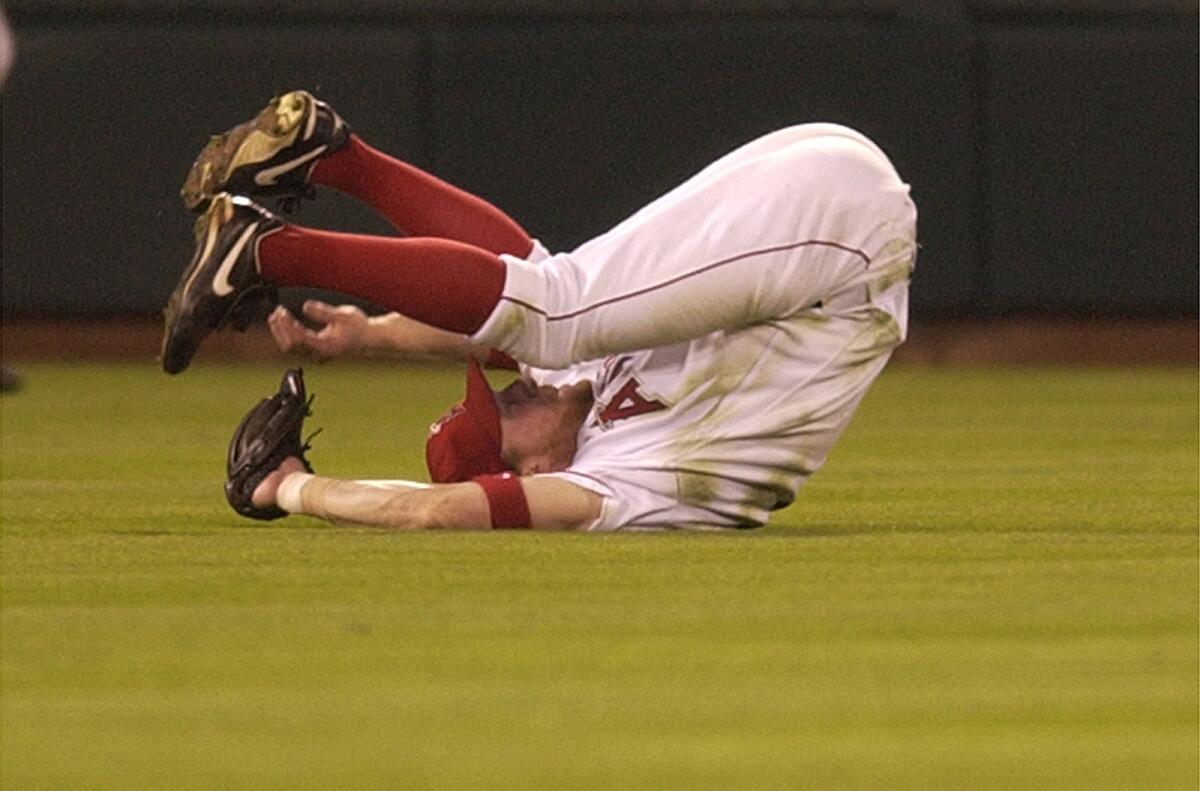
Yet, for an Angels fan, the most vivid memory of that championship season can be distilled into two words: Game 6.
Never before had a team trailed by so many runs in a World Series elimination game and come back to win. The Angels did it: down by five runs, and with just eight outs to spare. The most memorable hit: a home run by Scott Spiezio, transforming the journeyman first baseman into a cult hero and, at least for one night that winter, into a rock star.
Mike Scioscia, the Angels’ manager, said after the game he could compare the atmosphere in Anaheim only to that most hallowed of Southern California baseball moments, Kirk Gibson’s pinch-hit home run in Game 1 of the 1988 World Series at Dodger Stadium.
“There was about as much electricity in that stadium as there ever was,” Scioscia said. “I think tonight surpassed that.”

Angels win the 2002 World Series.
In one hour, the Angels turned a 5-0 deficit into a 6-5 victory. It was the hour that changed the course of a franchise. Even as the team owner no longer wanted to own the team, the players wanted to own the image of the team: bumblers and stumblers no more, hexes and jinxes buried for good, winners and champions forever.
As the Angels celebrate the 20th anniversary of the championship season, that one hour stands between a team and a complete and utter history of futility. The Angels won no championships before 2002, and they have won no championships since then.
If not for that one hour, the Angels would have completed 61 seasons without a championship. No major league team has played so long without winning a ring.
If not for that one hour, a team born in 1961 would be 0 for 61.
One team. One hour.
The story of that hour, as told by the players on that team:
Scott Spiezio’s home run sparked a historic moment for the Angels in Game 6 of 2002 World Series, but there was so much more to the comeback than that.
More to Read
Go beyond the scoreboard
Get the latest on L.A.'s teams in the daily Sports Report newsletter.
You may occasionally receive promotional content from the Los Angeles Times.

